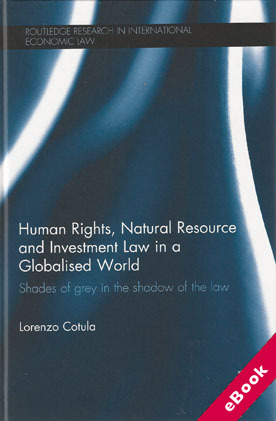
The device(s) you use to access the eBook content must be authorized with an Adobe ID before you download the product otherwise it will fail to register correctly.
For further information see https://www.wildy.com/ebook-formats
Once the order is confirmed an automated e-mail will be sent to you to allow you to download the eBook.
All eBooks are supplied firm sale and cannot be returned. If you believe there is a fault with your eBook then contact us on ebooks@wildy.com and we will help in resolving the issue. This does not affect your statutory rights.
In many parts of sub-Saharan Africa, economic liberalisation, improved transport and communication systems and the global demand for food, energy and commodities have fostered foreign investment in mining, petroleum and agriculture for food, fuel and agro-industrial commodities.
In 2008 foreign investment flows to the continent reached a record level at nearly US$64 billion. By contributing capital, technology, know-how, infrastructure and livelihood opportunities, increased investment in natural resources may bring macro-level benefits such as economic growth and greater government revenues. But it can also bring risks, as local people could lose access to the resources on which they depend – not just land, but also water, wood and grazing.
This book explores how the law protects the different and competing interests that are brought into contact by foreign investment projects in Africa. It draws on international investment and human rights law, on the national law of selected jurisdictions and on the contracts concluded for a large investment project to consider the legal frameworks regulating the growing investment flows to Africa.
The book relates the findings of this legal analysis to an analysis of negotiating power between different holders of legally protected rights (investors, local people affected by the investment), exploring whether any differences in legal protection tend to counter, or reinforce, asymmetries in negotiating power. The outcome is a thorough legal analysis that is directly anchored to social processes and that provides insights into the relationship between law and power in a globalised world.